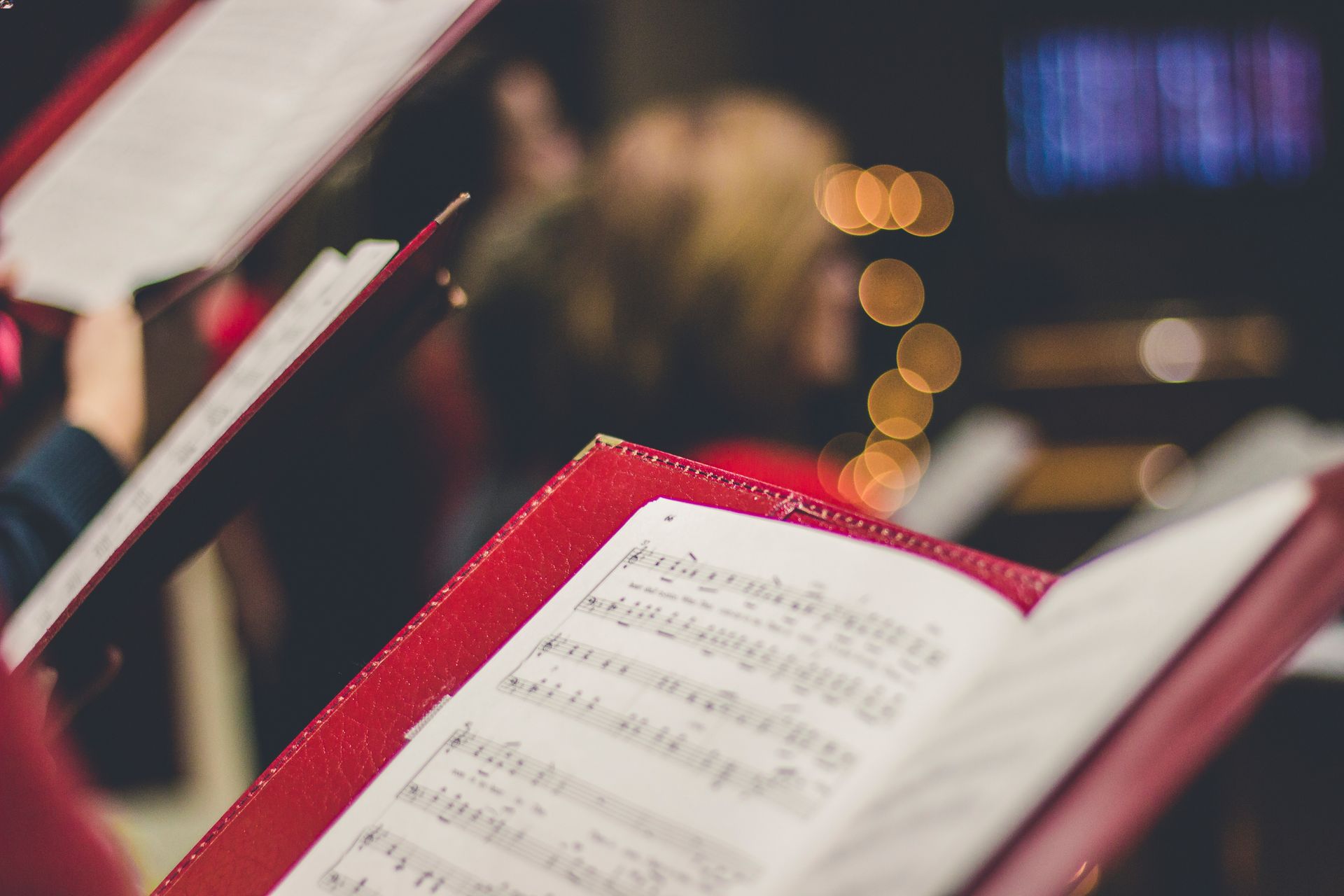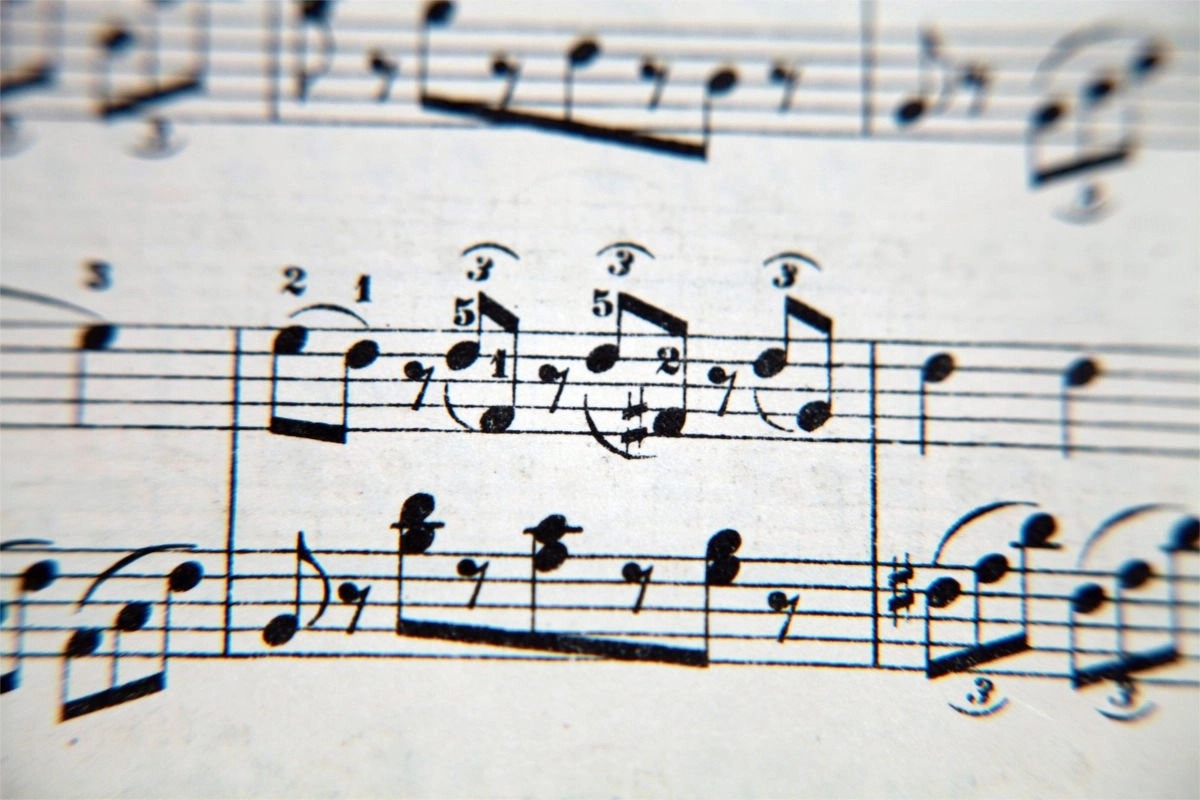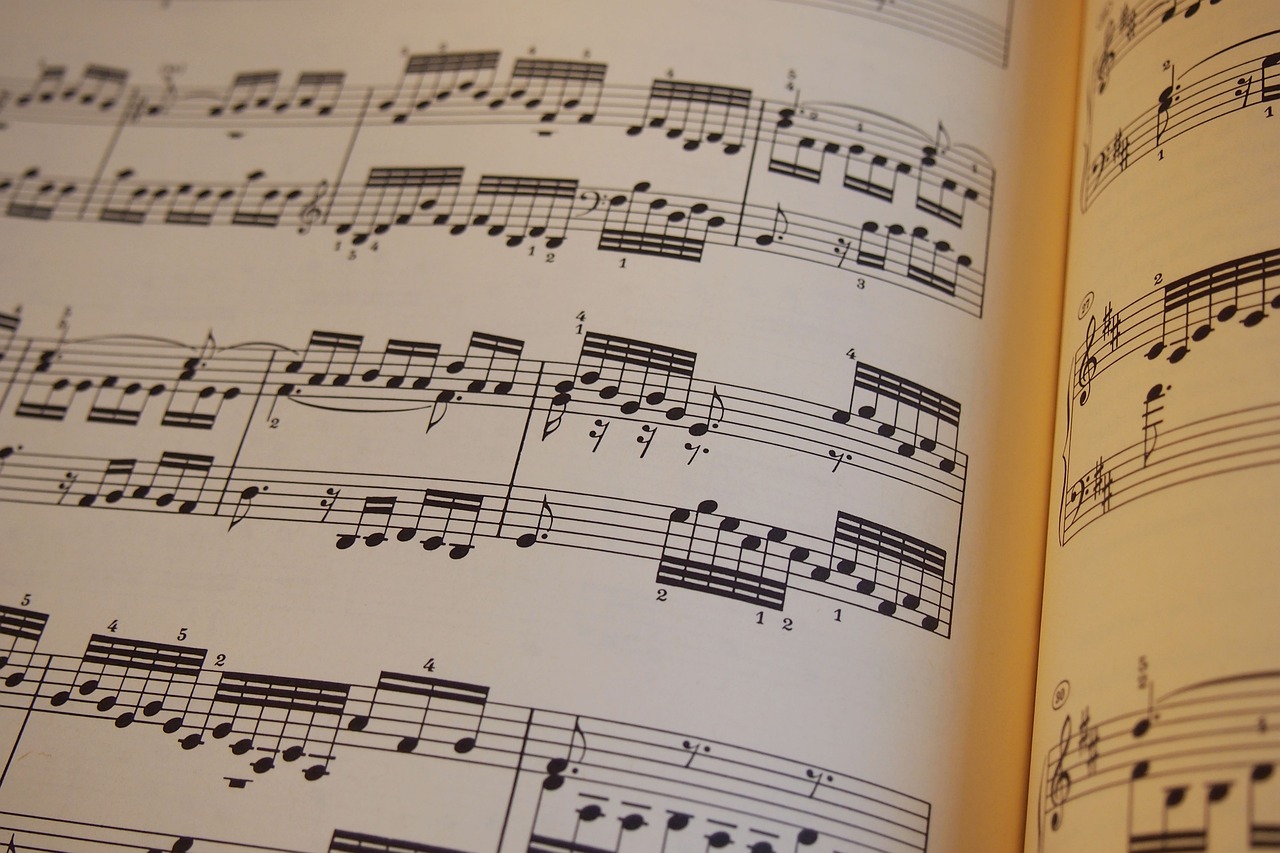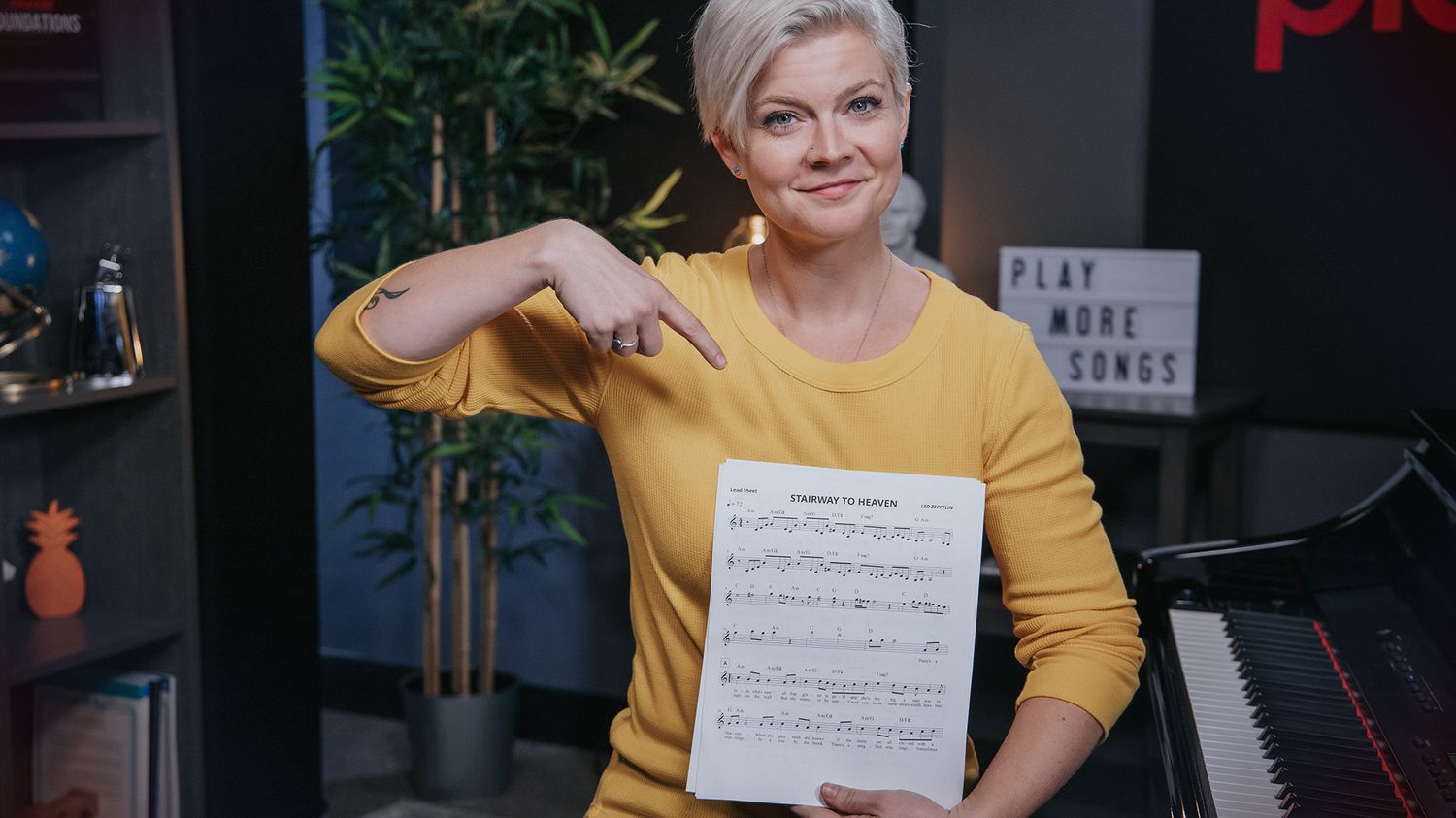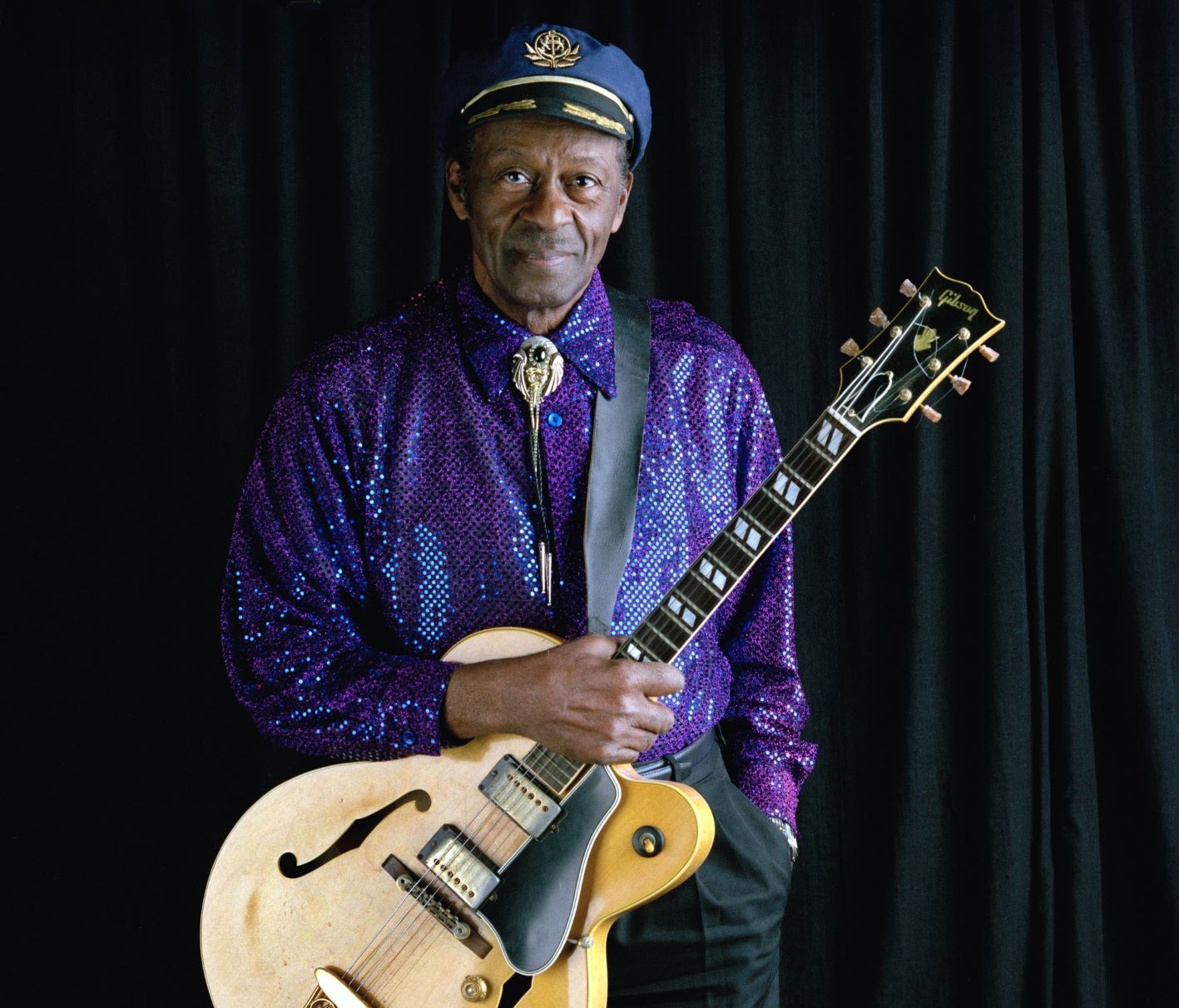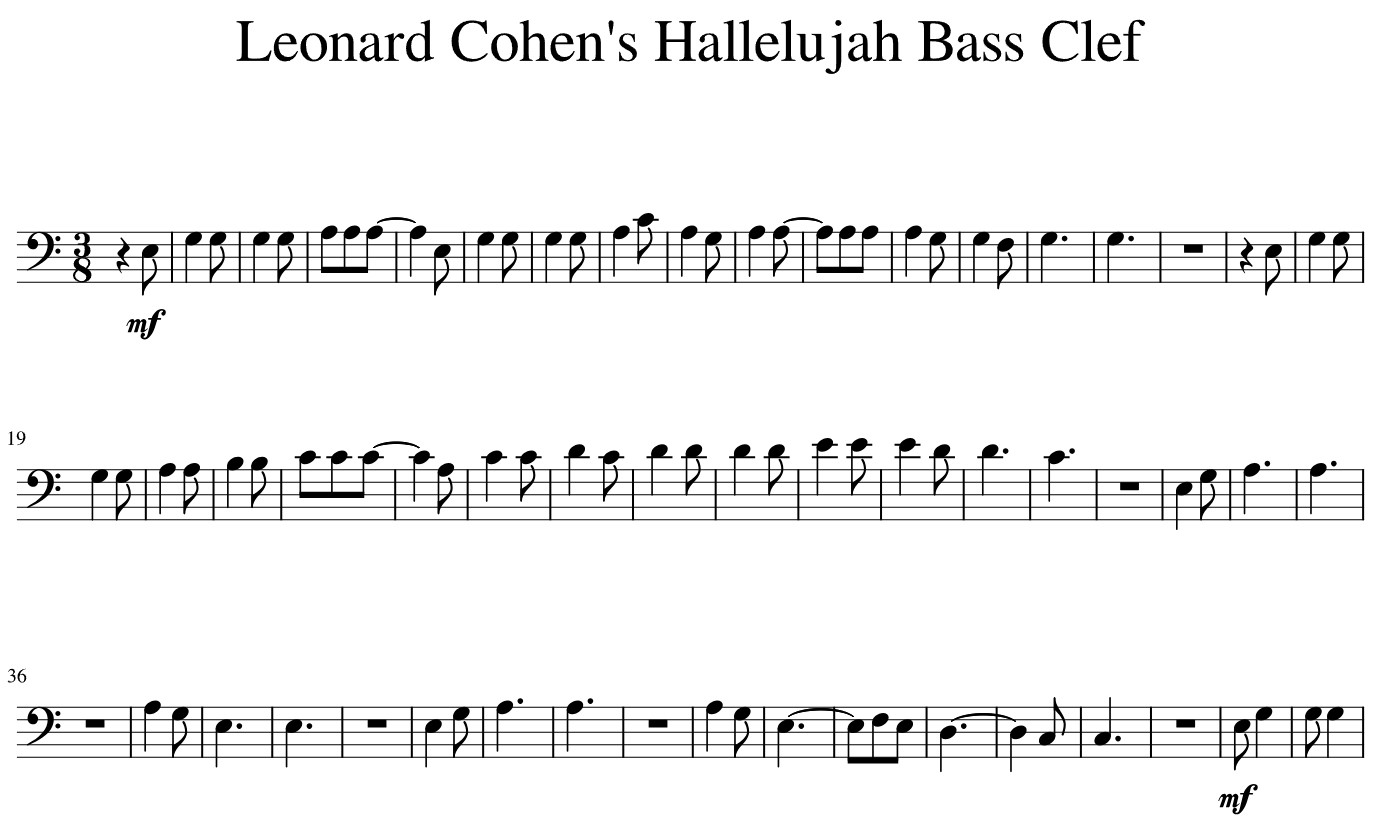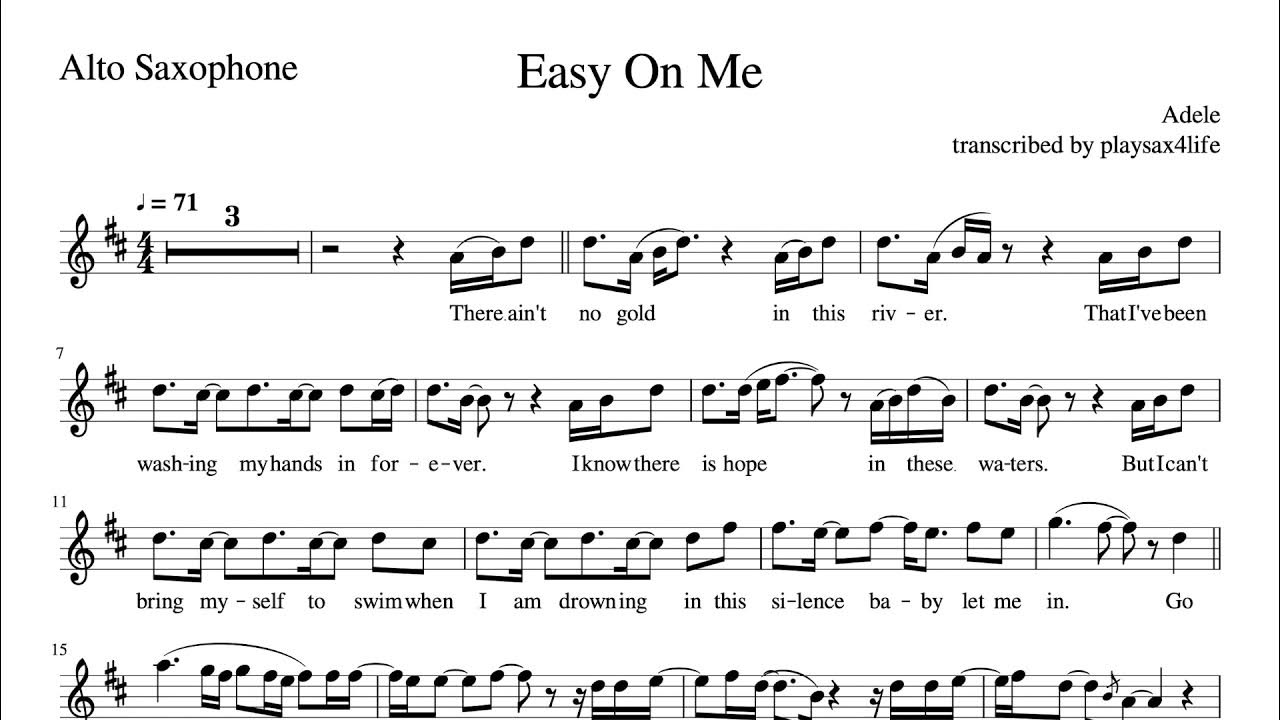

Rock
How Many Rock Musicians Read Music
Modified: February 1, 2024
Discover how many rock musicians read music and the importance of musical notation in the rock genre. Uncover the connection between rock and sheet music in this insightful article.
(Many of the links in this article redirect to a specific reviewed product. Your purchase of these products through affiliate links helps to generate commission for AudioLover.com, at no extra cost. Learn more)
Table of Contents
- Introduction
- The Importance of Music Reading in Rock Music
- Common Misconceptions about Rock Musicians and Music Reading
- Surveying Rock Musicians’ Music Reading Skills
- Results of the Music Reading Survey
- Factors Influencing Rock Musicians’ Decision to Read or Not to Read Music
- Benefits of Music Reading for Rock Musicians
- Challenges Faced by Rock Musicians in Learning to Read Music
- Strategies for Rock Musicians to Improve Music Reading Skills
- Conclusion
Introduction
Rock music has been at the forefront of popular culture for decades, captivating audiences with its powerful and rhythmic sound. One common perception about rock musicians is that they do not read music. It is often assumed that rock musicians rely solely on their raw talent, instinct, and ear to create music. However, this notion is not entirely accurate.
In reality, the ability to read sheet music is a valuable skill that can greatly benefit rock musicians. While there may be some rock musicians who do not read music, many others embrace it as an additional tool in their musical arsenal. Whether it is through notation or tablature, reading music provides a deeper understanding of music theory, helps in composition and arrangement, and facilitates effective communication with other musicians.
In this article, we will debunk common misconceptions about rock musicians and their music reading skills. We will explore the results of a survey conducted to gauge the prevalence of music reading among rock musicians. Additionally, we will dive into the benefits of music reading in the rock genre, the challenges faced by rock musicians in learning to read music, and strategies to improve music reading skills.
By shedding light on the importance of music reading in rock music, this article aims to inspire rock musicians to embrace this skill and encourage those interested in pursuing a career in rock music to realize the value it brings. So, let’s dive in and explore the fascinating world where rock and music reading intersect!
The Importance of Music Reading in Rock Music
While rock music is often associated with its raw and rebellious nature, music reading plays a significant role in the genre’s development and its musicians’ ability to create impactful compositions. Here are key reasons why music reading is important in rock music:
1. Understanding and Implementing Music Theory: Music reading provides a foundation in music theory, allowing rock musicians to comprehend the intricacies of melody, harmony, rhythm, and structure. By understanding music theory, rock musicians can create more sophisticated and intricate compositions that go beyond basic power chords and simple song structures.
2. Enhancing Communication and Collaboration: Music reading provides a universal language that allows musicians to effectively communicate their musical ideas. When collaborating with other musicians, the ability to read music enables seamless and efficient sharing of musical notation, making it easier to create harmonies, arrangements, and intricate instrumental sections.
3. Expanding Songwriting Possibilities: Reading music opens up a world of possibilities for rock musicians in terms of songwriting. It allows for experimentation with various musical elements, such as complex chord progressions, modulations, and melodic variations. This expanded repertoire of musical techniques helps rock musicians to create unique and memorable compositions.
4. Improving Improvisation Skills: Despite the misconception that rock music is purely improvised, a strong foundation in music reading can greatly enhance a rock musician’s improvisational abilities. By understanding music theory and being able to read notation or chord charts, musicians can quickly identify and navigate through different chord progressions and scales, allowing for more creative and expressive improvisation.
5. Professional Opportunities: Rock musicians with music reading skills have a broader range of professional opportunities available to them. They can seamlessly integrate into studio sessions, live performances with orchestras or ensembles, and musical production teams. Music reading provides a level of versatility that opens doors to collaborations with musicians from different genres and styles.
By recognizing the importance of music reading in rock music, rock musicians can enhance their musicianship and unlock new creative possibilities. Moving forward, we will address common misconceptions about rock musicians and their relationship with music reading.
Common Misconceptions about Rock Musicians and Music Reading
Rock musicians have long been associated with a rebellious and non-conformist attitude that is often believed to reject traditional music education, including the ability to read sheet music. However, these assumptions are misleading and fail to capture the diversity and dedication within the rock music community. Let us debunk some of the common misconceptions about rock musicians and their relationship with music reading:
1. Rock Musicians Do Not Need to Read Music: While some rock musicians may rely on their natural talent and ear for music, many recognize the value of music reading as an additional skill. It is a misconception to assume that reading music is unnecessary or incompatible with the rock genre. In fact, many renowned rock musicians, such as Jimmy Page of Led Zeppelin and David Bowie, were highly proficient in reading and writing music.
2. Music Reading Limits Artistic Freedom: Another misconception is that reading music stifles creativity and limits a musician’s artistic freedom. In reality, music reading serves as a tool to enhance creativity and expand artistic possibilities. It offers a deeper understanding of musical elements and allows rock musicians to explore complex arrangements and harmonies while maintaining their unique style and expression.
3. Rock Musicians Rely Solely on Ear and Instinct: While rock musicians often have a strong sense of intuition and rely on their ears to create music, this does not mean they completely disregard music theory or reading notation. Many rock musicians use their ear training in conjunction with music reading to enhance their musicality and create more nuanced compositions.
4. Reading Music Is Time-Consuming and Difficult to Learn: Some aspiring rock musicians may shy away from learning to read music due to the misconception that it is a complex and time-consuming task. While it may require dedication and practice, learning to read music is a manageable skill that can be acquired gradually. With the right guidance and resources, rock musicians can develop their music reading abilities without feeling overwhelmed.
5. Music Reading Is Only for Classical Musicians: Another misconception is that music reading is exclusive to classical musicians and has no place in the rock genre. However, music reading is a universal skill that transcends musical genres. It is a valuable tool for communication and collaboration among musicians from different backgrounds, and it can enhance the versatility and depth of rock musicians’ musical abilities.
By dispelling these misconceptions, we can appreciate the diversity and talent within the rock music community. It is important to recognize that music reading can coexist with the raw energy and improvisational nature of rock music, offering rock musicians new avenues for creativity and collaboration. In the next section, we will delve into the results of a survey conducted to gain insights into the music reading skills of rock musicians.
Surveying Rock Musicians’ Music Reading Skills
In order to gain deeper insights into the prevalence of music reading among rock musicians, a survey was conducted among a diverse group of rock musicians. The survey aimed to understand their current music reading abilities, their reasons for choosing to read or not to read music, and their perceptions of the benefits and challenges associated with music reading in the rock genre.
The survey included questions about the musicians’ level of proficiency in reading sheet music or tablature, their exposure to music reading during their music education journey, and their personal experiences with integrating music reading into their rock music practice.
The survey was distributed online through various music forums, social media platforms, and rock music communities. A total of 500 rock musicians participated in the survey, representing a wide range of experience levels and musical backgrounds.
The results of the survey painted an interesting picture of the rock music community’s engagement with music reading. While there was a diverse range of responses, some key trends emerged:
- Approximately 60% of the surveyed rock musicians reported having basic to advanced music reading skills.
- Many rock musicians acquired their music reading skills through formal education, private lessons, or self-study.
- For those who did not read music, the majority cited reasons such as relying on their ear, prioritizing improvisation, or feeling that music reading was unnecessary for their style of rock music.
- Interestingly, several rock musicians expressed a desire to learn or improve their music reading abilities, recognizing the potential benefits it could bring to their musical journey.
These findings highlight the diverse perspectives and choices within the rock music community when it comes to music reading. While a significant number of rock musicians do embrace music reading as a valuable skill, there are still others who prefer to rely on their instincts and experience.
It is important to note that music reading skills do not define a musician’s talent or ability. Ultimately, the choice to read music or not depends on individual preferences, goals, and musical styles within the rock genre. However, it is worth exploring the potential advantages and challenges that come with music reading in the context of rock music, which we will delve into in the following sections.
Results of the Music Reading Survey
The results of the music reading survey conducted among rock musicians shed light on the current landscape of music reading within the rock music community. Here are the key findings:
- Percentage of Rock Musicians Who Read Music: Out of the 500 participants, approximately 60% reported having basic to advanced music reading skills. This indicates that a significant portion of the rock music community recognizes the value and benefits of music reading in their musical journeys.
- Sources of Music Reading Education: Many rock musicians who reported reading music acquired these skills through various sources, including formal education, private lessons, and self-study. Formal education, such as music schools or conservatories, accounted for a smaller proportion of the participants, while a larger number had learned to read music through private lessons or self-guided study using online resources, books, and tutorials.
- Reasons for Not Reading Music: Among the rock musicians who did not read music (approximately 40% of the participants), various reasons were mentioned. The most common reasons were relying on their ear and instinct, prioritizing improvisation and creativity, or feeling that reading music was unnecessary for their style of rock music. It is important to note that these reasons are valid choices made by individual musicians based on their personal preferences and musical goals.
- Desire to Learn Music Reading: Interestingly, a significant number of rock musicians expressed a desire to learn or improve their music reading skills. Some cited curiosity about music theory and a desire to expand their songwriting abilities, while others acknowledged the potential career opportunities and collaborative advantages that music reading could bring. This indicates a growing recognition of the benefits that music reading can offer in the rock music world.
These survey results illustrate the diversity of perspectives and choices within the rock music community when it comes to music reading. While a substantial number of rock musicians currently read music, there are still many who rely on their ears and intuition as a primary means of creating music.
It is important to remember that reading music is not a prerequisite for musical talent or success in the rock genre. Many legendary rock musicians have achieved greatness without formal music reading skills. However, the survey results suggest that there is an increasing awareness among rock musicians about the potential advantages that music reading can provide in terms of musical understanding, collaboration, and creative possibilities.
In the following sections, we will delve into the benefits of music reading for rock musicians and the challenges they may face in learning to read music.
Factors Influencing Rock Musicians’ Decision to Read or Not to Read Music
The decision of rock musicians to read or not to read music is influenced by a variety of factors. Each musician’s choice is shaped by their personal preferences, musical goals, and the context in which they create and perform rock music. Here are some key factors that can influence a rock musician’s decision:
- Musical Style and Genre: The style and genre of rock music a musician engages with can impact their decision to read music. Certain subgenres of rock, such as punk or garage rock, prioritize raw energy and spontaneity, leading some musicians to rely more on their instincts and improvisational skills. On the other hand, rock musicians involved in more intricate and progressive styles may find music reading essential for communicating complex arrangements.
- Education and Musical Background: A rock musician’s background in music education can greatly influence their inclination to read music. Those who received formal training in music schools or conservatories are more likely to have learned music reading as part of their education. Conversely, musicians who are self-taught or have focused on practical performance skills may have developed alternative methods for learning and creating music.
- Emphasis on Improvisation and Creative Freedom: Rock music is often associated with improvisation and the freedom to express oneself through spontaneous musical exploration. Some rock musicians prioritize this creative freedom and choose not to read music to maintain a more instinctual and intuitive approach to their craft. They may find that relying on their ear and improvisation allows them to channel their emotions and connect more deeply with their audience.
- Collaboration and Communication: For rock musicians who engage in collaborative projects or play in bands, the ability to read music can facilitate effective communication and collaboration. Music reading provides a standardized language for sharing musical ideas, arranging compositions, and ensuring that everyone in the group is on the same page. Musicians who prioritize collaborative efforts may be more inclined to develop their music reading skills.
- Desire to Expand Musical Knowledge and Skills: Some rock musicians choose to learn to read music because they seek to expand their musical knowledge and skills. They recognize that music reading offers a deeper understanding of music theory, harmony, and composition. Additionally, reading music can open up doors to explore other genres, collaborate with musicians from diverse backgrounds, and enhance their overall musicianship.
It is important to note that these factors are not mutually exclusive, and individual rock musicians may consider a combination of these influences in making their decision. The choice to read or not to read music ultimately depends on the artistic vision, goals, and personal preferences of the musician.
In the next sections, we will explore the benefits that music reading can bring to rock musicians, as well as the challenges they may encounter in learning to read music.
Benefits of Music Reading for Rock Musicians
While rock music is often associated with its raw and instinctual nature, there are numerous benefits that music reading can bring to rock musicians. Here are some key advantages of developing music reading skills in the rock genre:
- Enhanced Music Theory Understanding: Music reading provides a deeper understanding of music theory, including concepts such as scales, chords, and harmonies. This knowledge allows rock musicians to create more intricate compositions, experiment with different chord progressions, and explore more complex musical arrangements.
- Effective Communication and Collaboration: Music reading serves as a universal language among musicians. For rock musicians who collaborate with others, the ability to read music facilitates clear and efficient communication of musical ideas. It allows for seamless sharing of compositions, arrangements, and musical notations, making the collaborative process smoother and more effective.
- Expanded Songwriting Possibilities: Music reading offers rock musicians the ability to explore a wider range of songwriting possibilities. It enables the use of varied musical elements, such as intricate chord progressions, modulations, and melodic variations. By reading music, rock musicians can expand their options and create compositions that are both unique and musically compelling.
- Improved Accuracy in Reproducing Music: Music reading aids rock musicians in accurately reproducing music, especially when covering or learning songs by other artists. Reading sheet music or tablature provides precise information on rhythm, melody, and chord progressions, allowing for more faithful interpretations of the original material.
- Enhanced Improvisation Skills: Contrary to the misconception that music reading inhibits improvisation, it actually improves improvisational abilities for rock musicians. By developing music reading skills, rock musicians gain a deeper knowledge of scales, chord progressions, and musical structures. This foundation empowers them to confidently navigate through improvisational moments and create more meaningful musical expressions.
- Professional Opportunities: Rock musicians with music reading skills often have a broader range of professional opportunities available to them. They can engage in studio sessions, perform with orchestras or ensembles, and contribute to musical production teams. Music reading provides versatility, allowing rock musicians to collaborate with artists from different genres and styles, expanding their artistic network.
By embracing music reading within the rock genre, musicians can enhance their overall musicianship and unlock new creative possibilities. It offers a pathway to explore music theory, collaborate effectively, and communicate ideas with fellow musicians.
In the following sections, we will delve into the challenges that rock musicians may face in learning to read music, as well as strategies to overcome these obstacles and improve music reading skills.
Challenges Faced by Rock Musicians in Learning to Read Music
While music reading offers numerous benefits to rock musicians, learning to read music can pose certain challenges. Here are some common obstacles that rock musicians may encounter when acquiring music reading skills:
- Lack of Prior Exposure: Many rock musicians begin their musical journey without any formal music education or exposure to reading sheet music. The lack of prior exposure and familiarity with music notation can make it initially challenging for rock musicians to understand and interpret musical symbols and notation systems.
- Complexity and Time Commitment: Learning to read music requires time, patience, and consistent practice. Rock musicians may find the complexity of music notation and the need to simultaneously understand rhythm, pitch, and timing to be daunting. The initial learning curve and investment of time can deter some rock musicians from pursuing music reading skills.
- Emphasis on Aural Skills: Rock music has a strong emphasis on aural skills, with many musicians relying on their instinct and ear to create and perform. This reliance on aural skills can sometimes lead to a resistance or skepticism towards the value of music reading. Some rock musicians may feel that reading music hinders their ability to tap into their spontaneous creativity and emotional expression.
- Different Notation Systems and Styles: Depending on the musical context and genre, rock musicians may encounter different notation systems, such as traditional staff notation or guitar tablature. Adapting to different notation systems and styles can be challenging initially, as each system has its own set of rules and symbols that need to be learned and understood.
- Integration with Rock Performance: The challenge for many rock musicians lies in integrating their music reading skills with their live performances. Reading music while playing an instrument, especially in high-energy rock performances, requires multitasking and coordination. It takes practice to seamlessly read and execute music while maintaining stage presence and engaging with the audience.
It is important to acknowledge that these challenges are common and can be overcome with dedication, practice, and the right resources. While learning to read music may pose initial difficulties, the benefits it brings to a rock musician’s musicality and creative possibilities make it a worthwhile pursuit.
In the next section, we will explore strategies and tips to help rock musicians improve their music reading skills and navigate these challenges.
Strategies for Rock Musicians to Improve Music Reading Skills
Improving music reading skills is an attainable goal for rock musicians with dedication and practice. Here are some effective strategies to help rock musicians on their journey to enhance their music reading abilities:
- Start with Basic Music Theory: Develop a foundational understanding of music theory by studying concepts like scales, chords, and rhythm. This will provide a solid groundwork for reading and interpreting sheet music or tablature.
- Gradual Progression: Start with simple musical pieces or exercises and gradually work your way up to more complex compositions. Break down the music into smaller sections and practice reading them one at a time. Consistent and focused practice is key to improving music reading skills.
- Utilize Learning Resources: Take advantage of learning resources such as instructional books, online tutorials, and interactive music apps. These resources can offer guidance on music reading techniques, provide practice exercises, and help you familiarize yourself with different notation systems.
- Study Music Notation: Familiarize yourself with the symbols and terminology used in music notation. Focus on understanding note values, rhythm indicators, dynamics, and articulation markings. As you become more comfortable, gradually delve into more advanced aspects of music notation.
- Practice Sight-Reading: Make sight-reading a regular part of your practice routine. Practice reading music that is new to you without prior preparation. Start with simpler pieces and gradually challenge yourself with more complex compositions. Sight-reading exercises can significantly improve your ability to read and perform music in real-time.
- Seek Guidance from a Music Teacher: Consider working with a music teacher or instructor who specializes in your instrument and is proficient in music reading. They can provide personalized guidance, offer tips and techniques tailored to your needs, and help you navigate the challenges of learning to read music.
- Integrate Music Reading into Playing: Practice playing along with sheet music or tablature to develop the ability to read and play simultaneously. Start by playing simple melodies or chord progressions and gradually progress to more complex compositions. This will strengthen your ability to read and execute music in real-time.
- Collaborate and Perform with Others: Joining a band or participating in ensemble groups can provide valuable opportunities to practice reading music in a real-world musical context. Collaborating with other musicians will improve your ability to read notation or chord charts and effectively communicate within a group setting.
Remember that improving music reading skills requires patience, perseverance, and consistent effort. Celebrate small victories along the way and enjoy the process of learning and exploring new musical horizons. By incorporating these strategies into your practice routine, you will gradually become more confident and proficient in reading music, opening up new creative possibilities in your rock music journey.
In the following section, we will conclude our exploration of the importance of music reading in rock music and summarize the key takeaways from this article.
Conclusion
Music reading may not be the first skill that comes to mind when thinking about rock musicians, but it is a valuable tool that can greatly enhance their musicianship and creative possibilities. Through this article, we have debunked the common misconceptions surrounding rock musicians and their relationship with music reading. We discovered that while some rock musicians choose not to read music, many embrace this skill as an additional tool in their musical toolkit.
Music reading offers several benefits to rock musicians. It enhances their understanding of music theory, facilitates effective communication and collaboration with other musicians, expands songwriting possibilities, helps with accurate performance reproduction, improves improvisational skills, and opens up professional opportunities.
However, learning to read music can present challenges, including the initial lack of exposure to music notation, the perceived complexity of notation systems, and the integration of music reading into live performances. But with dedication, practice, and the utilization of various learning resources, these challenges can be overcome, and rock musicians can improve their music reading skills.
Rock musicians can start by building a foundation in music theory, gradually progressing to more complex compositions, and utilizing resources such as instructional books, online tutorials, and music apps. Regular sight-reading practice, seeking guidance from a music teacher, integrating music reading into playing, and collaborating with others are also effective strategies for improvement.
Ultimately, the decision to read or not to read music is a personal one, influenced by various factors such as musical style, education background, and artistic goals. The key takeaway is that music reading is a valuable tool that can enhance a rock musician’s musicality, creativity, and collaboration, providing them with new avenues for expression and growth.
So, whether you are rocking out on guitar, pounding the drums, or belting out lyrics, consider exploring the world of music reading. Embrace the challenges, seek guidance, and enjoy the journey of expanding your musical horizons as a rock musician.

